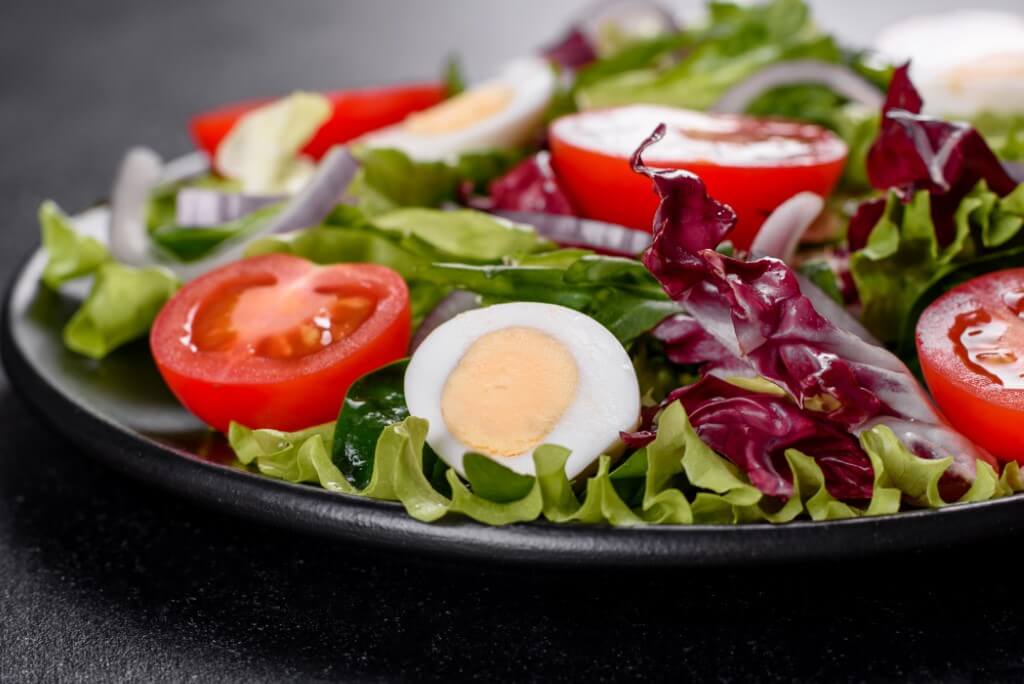- Daylight Saving Time and Its Sweet Ties to Halloween - December 1, 2023
- Puerto Rico’s Ponce Massacre - November 30, 2023
- The Origins of the Doughnut - November 27, 2023
Food addiction is a very real problem in today’s modern society. Many people, particularly women, experience feelings of guilt and shame about their weight and their inability to “control” their eating habits. On the other hand, there are ways to deal with uncontrollable eating urges and emotional eating that can help you get to the root of your food addiction and start the healing process.
The Struggle of Insatiable Hunger and Emotional Overeating
On rare occasions, it is acceptable to find pleasure in food. Our bodies are hardwired to find pleasure in food consumption. Dopamine is a neurotransmitter that is released when we complete necessary survival actions, such as eating, and this chemical ensures that we will continue to seek out and consume food. On the other hand, in some cases, people can become overly reliant on food for a “fix” of dopamine, which can lead to food addiction.
Sugary, salty, and fatty foods are examples of “highly palatable” foods that are commonly associated with food addiction (especially the highly processed variety).
How to Stop Emotionally Distressed Overeating
Emotional eating can be a difficult issue to manage. Because eating is necessary for survival (we can’t live without food! ), most people cannot give up food entirely. Furthermore, one should enjoy their food! On the other hand, food consumption can become compulsory for some people. The following are some of the most effective strategies for resolving emotional eating issues and improving overall health:
Take Care of the Physiological Issues at Their Source
Food addiction is frequently influenced by a person’s emotions, but other factors may also be present. Given that addressing nutritional deficiencies is already beneficial to one’s overall health, it is prudent to start by focusing on the causes related to the body.
Consume a Nutrient-Dense Diet
If cravings are caused by a nutrient deficiency or a poor diet, eating a diet rich in micronutrients (which can be found in fruits, vegetables, and products derived from grass-fed or pastured animals) is an excellent way to improve overall health and address any potential deficiencies. Even if this is not the primary cause of your condition, a healthier diet will be beneficial to you.
Medications
Some medications cause people to overeat and gain weight, which can be the beginning of a cycle of emotional eating that leads to overeating. This side effect is frequently reduced or eliminated by switching to a different medication or taking a lower dose of the one you are currently taking. Discuss this with your prescribing physician.
Stress
Our bodies are biologically programmed to crave sweet, salty, and fatty foods when we are under mental or emotional stress (they are high-energy foods after all). However, given the amount of chronic stress that the majority of us face daily, this survival response may do more harm than good. Make self-care a daily priority to reduce your stress levels. Make time in your schedule for activities that will help you relax and regain your equilibrium, such as going to a fitness class or spending some quiet time at home by yourself.
Restore Hormone Balance
Although stress affects hormones in the body (it causes cortisol to be released), other hormonal imbalances can have similar effects to stress. Overall health requires rebalancing the hormones, which can also help with food cravings and eating when you are emotionally upset. The following are some ideas for achieving a natural state of hormonal balance:
Consumes a diet high in healthy fats because the human body was not designed to digest synthetic or highly processed fats. Maintain a diet rich in healthy fats, such as those found in unheated olive oil, coconut oil, olives, avocados, and pastured and grass-fed animal products.
If you want to keep your endocrine system healthy, you should avoid caffeine and environmental toxins.
Get plenty of rest
The body eliminates toxins, repairs cells, and produces hormones while sleeping. All of these processes take place at the same time.
The proper way to exercise
Those suffering from a hormone imbalance should avoid strenuous workouts for the time being until their hormone levels have returned to normal. Walking and swimming are examples of gentle exercise.
Keep an eye on the leptin balance
Because leptin is the master hormone, when it is out of balance, everything else suffers.
Following the implementation of the aforementioned recommendations, you should also consider following a hormone-balancing diet.
Change Your Way of Thinking About Food
A significant number of professionals discuss the concepts of food addiction and emotional eating in the context of our relationship with food. If we are compulsive eaters or have emotional eating issues, we have a negative relationship with food. Robb Wolf, on the other hand, has a distinct point of view. In a podcast episode, he explains this concept by stating that food addiction has nothing to do with one’s relationship with food. Wolf explains that focusing on the food and attempting to exert control over it is not the solution.
Instead, we should concentrate on identifying the underlying emotional reasons that drive people to use food in an addictive manner. Through this method, people can stop focusing on food and instead begin the process of healing the underlying emotional triggers in their lives.
Learn About the Human Body
A significant number of people feel intense guilt as a result of emotional eating, binge eating, or an inability to lose weight. Wolf, on the other hand, explains that we need to reframe the situation. When we look at human history and biology, we can see that the human body was designed to seek out food and consume it as soon as it was discovered (just in case there was no other option).
Because of the ease with which food can be obtained in our modern society, this presents a challenge (especially the highly palatable sugary, fatty, and salty foods). People who are obese, on the other hand, have a better chance of survival. They can store some of their body’s calories for use during times of famine.
With this knowledge, we can see that our bodies are pretty amazing and that they perform their functions exactly as they were intended. Rather than simply imposing restrictions or making the individual feel bad about themselves, the solution should focus on collaborating with the body.
Dietary Guidelines
A healthy diet is important for overall health, but it is also critical for overcoming food cravings and emotional stress eating. As previously stated, a nutrient-dense diet is an excellent place to start. Choose whole foods derived from nutritious sources, such as a high protein intake, a wide variety of vegetables, a small amount of fruit, and healthy fats. Consuming a diverse range of whole foods is the most effective way to obtain a diverse range of nutrients. Foods that have been highly processed and are low in nutrients should be avoided.
After starting a real-food diet, you may need to make some adjustments based on how your body reacts to the new foods. Some people, for example, are allergic to dairy products, legumes, certain types of fruit, and other foods. Carbohydrates are a dietary component on which people have differing opinions.
As Robb Wolf explained in the podcast episode linked above, a low-carb or ketogenic diet can be fantastic for some people while being a recipe for disaster for others. When we get to this point, we need to do some research and work to figure out how many carbohydrates make us feel our best and what type of carbohydrates make us feel our best.
Nutritionist Stephanie Dodier explains in another episode of the podcast that carbohydrates play a role in emotional eating, but that she recommends different amounts of carbohydrates for different people based on their individual needs. Dodier recommends becoming intimately acquainted with your body in order toto determine the optimal number of carbohydrates for your health. In general, nutritionists advise starting a paleo diet with a certain amount of carbohydrates and gradually decreasing that number as needed.
Include (Healthy) Pleasure in Your Daily Routine
According to experts, it is acceptable to derive pleasure from food on occasion; however, this should not become your primary source of enjoyment. If you believe that eating is the only thing that makes you feel better, it’s time to look into other enjoyable activities. You can incorporate “me time” into your day and week by going for a walk, meditating, spending time with friends, going on dates with your spouse, spending time alone, and watching a movie you enjoy.
Have a Private Conversation With a Reliable Counselor or Therapist
It is pointless to focus on the eating aspect of the problem unless the emotional issues at the root of the addiction are addressed. He suggests seeing a therapist get to the bottom of people’s emotional attachments to food.
EFT is an acronym that stands for “Emotional Freedom Tapping.”
Brittany Watkins, an expert in Emotional Freedom Tapping (EFT), explains in one episode of her podcast that much of what happens with emotional eating happens subconsciously. The Emotional Freedom Technique (EFT) is a technique for identifying and treating underlying emotional triggers. Watkins explains that, while EFT may appear strange at first, it is based on science.
All of our memories are stored in the hippocampus (which looks a bit like a sponge). These recollections help us make snap decisions about recent events in our lives. For example, if you fell off your bike as a kid and scraped your knee because you were going too fast, you may think to yourself years later, “I should go at a more leisurely pace.” If you were bitten by a dog as a child, you may have difficulty letting go of the memory and develop an extreme fear of dogs as a result.










